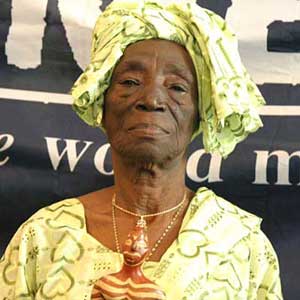Spice Island through the prism of music March 25, 2010
On Tuesday night we saw a documentary entwined with music, called “Zanzibar Musical Club”, directed by a former musician Philippe Gasnier, and as a co-author, Patrice Neznan. The film looks into the original musical culture and life on the Spice Island Zanzibar. Zanzibar, belonging to Tanzania, has for centuries been an important place on the commerce road in the Indian Ocean, where people, cultures and music from Africa, India and the Arabic world mix. Every night, musicians meet in the musical clubs to rehearse ensemble playing and practice new songs. Zanzibar's typical music is taarab, played on everyday occasions as well as in rituals and at weddings. Taarab's aim is not so much to entertain people, but rather heal them, and unite their souls. It is strongly collective music, and musical clubs are one expression of this tradition. Local people gather in the clubs which used to be open only for men: they exchange news, play games, and on the initiative of the ensemble, sing songs together.
One of the most spectacular characters in the film is an almost-one-hundred-year-old woman, Bi Kidude, a well respected and honoured singer, well known also in Europe, who has kept her voice and life force. It doesn't even matter if we see her performing on the stage or baking cakes at home, Kidude has the dignity of a thousand years. To relate this film to the festival's main topic, ageing, Kidude is an excellent example of a positive attitude towards old age. Despite being close to her hundredth birthday, Kidude is an active member of the community who passes on traditions and creates a connection with the ancestors and the old times.
Mari Kalkun

Bi Kidude